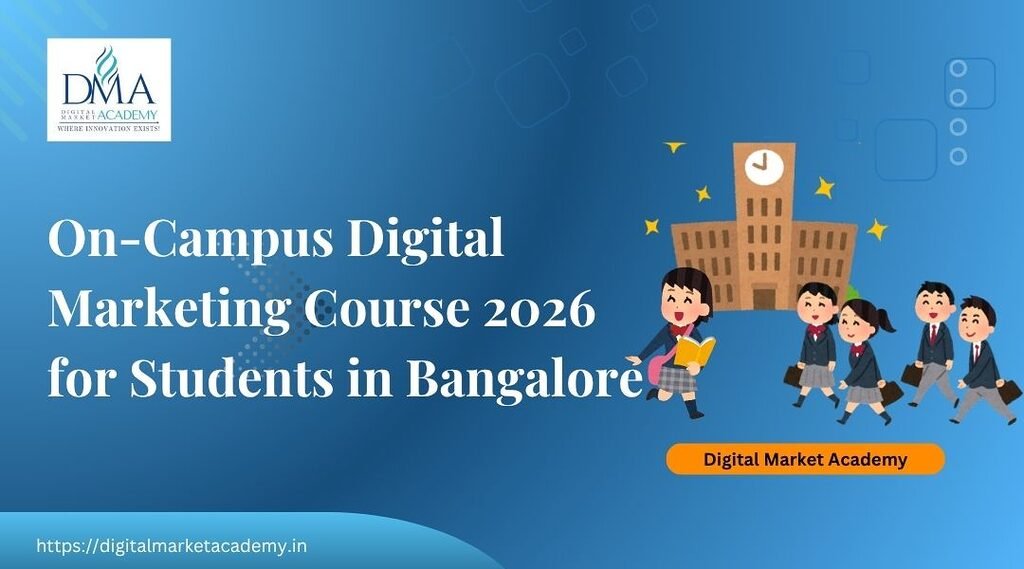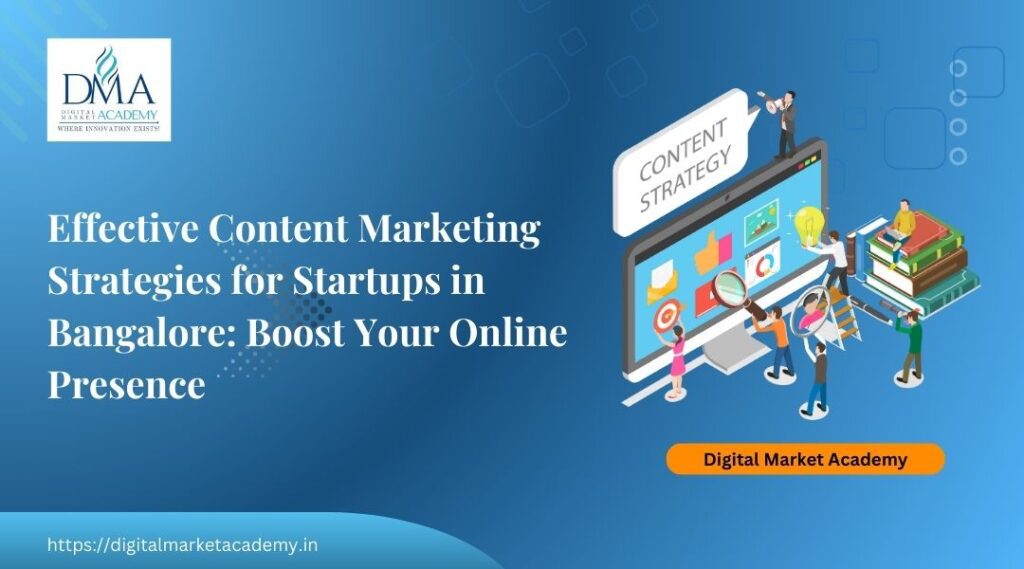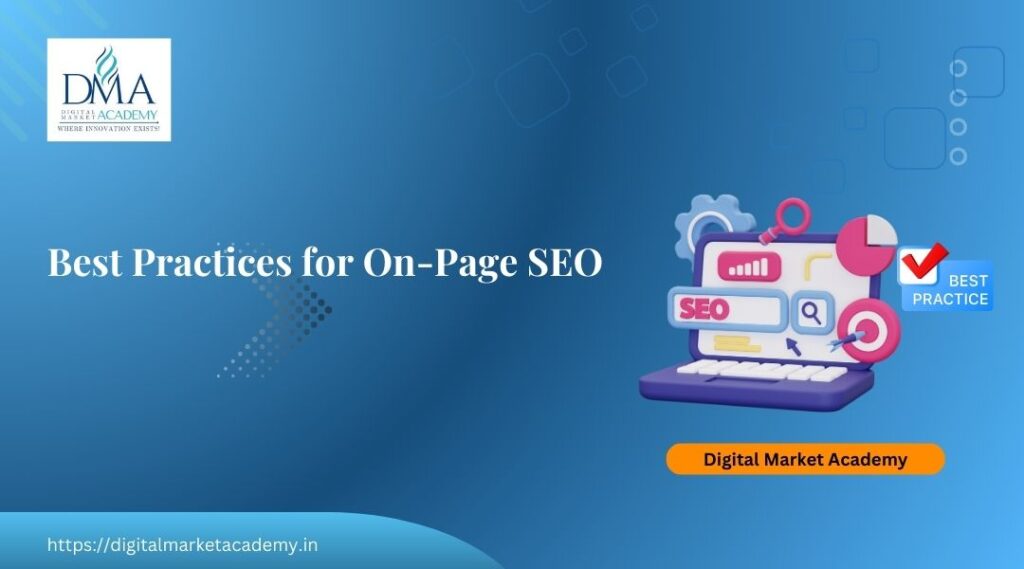

On-campus digital marketing course 2026 programs bring industry-relevant training directly to college and university campuses. Students learn practical marketing skills without leaving their educational institutions. No need to travel across cities for quality training. These add-on programs integrate with academic schedules. Students gain professional competencies while completing their degrees.
These on-campus digital marketing course 2026 formats work better than off-campus alternatives for college students. Classes happen on familiar campus grounds. Schedules align with existing academic timetables. Students attend marketing training between regular college classes. Kavya R secured a marketing internship during her final semester through campus add-on program. Landed a full-time position before graduation. The convenience and timing make professional skill development accessible during college years.
For a complete overview of all digital marketing training options including on-campus, online, part-time, weekend, and intensive formats, check out our digital marketing training 2026 guide.
On-Campus Digital Marketing Course 2026 Quick Summary
On-campus digital marketing course 2026 and add-on programs deliver practical training at your college:
- AI-enhanced, project-based curriculum with real campaign experience • Classes held on campus between your regular academic schedule • Portfolio development with measurable project outcomes • Career preparation integrated with college placement cells • No commuting costs or time wasted traveling to external centers • Lower fees through institutional partnerships and campus infrastructure
Why On-Campus Digital Marketing Training Works for Students
Traditional digital marketing courses require students to travel to training centers after college hours. Exhausting commutes. Time management challenges. Difficulty balancing academics with external training commitments. Many students abandon skill development programs because logistics become overwhelming.
On-campus digital marketing course 2026 eliminates these barriers completely. Training happens at your college campus. Between your regular classes. During free periods or dedicated skill development slots. No commuting stress. No schedule conflicts with academic responsibilities.
The familiar campus environment helps learning. You’re already comfortable in these spaces. Know where classrooms are. Can study with classmates before or after sessions. This comfort level improves focus compared to unfamiliar external training centers.
College administrations often provide infrastructure support for add-on programs. Computer labs with necessary software. High-speed internet connectivity. Projector and presentation equipment. Audio-visual facilities for practical demonstrations. These resources enhance learning quality without additional costs to students.
Peer learning opportunities multiply in campus settings. Your classmates attend the same training. You can form study groups easily. Collaborate on projects naturally. Share insights and learning resources. This collaborative environment accelerates skill development.
Comprehensive Curriculum of On-Campus Digital Marketing Course 2026
Digital Marketing Foundations and Strategy Core marketing principles adapted for digital channels. Consumer behavior patterns in online environments. Strategic planning frameworks professionals use in agencies and companies.
Website Development and SEO Training WordPress installation and basic configuration. Complete SEO training covering keyword research, on-page optimization, technical SEO, local SEO, voice search optimization. App Store Optimization for Google Play and iOS.
Paid Advertising and Social Media Google Ads training covering search, display, YouTube, shopping campaigns. Social media marketing for Facebook, Instagram, LinkedIn, Twitter. Content creation workflows and platform-specific strategies.
Analytics and Career Development Google Analytics 4 implementation and conversion tracking. Email marketing and automation. Resume writing, LinkedIn optimization, portfolio development, interview preparation.
Project-Based Learning in Campus Programs
Project 1: College Event Promotion Campaign Create complete digital marketing campaign for college cultural fest or technical symposium. Develop social media content calendar and posting schedule. Implement paid advertising on Facebook and Instagram for event promotion. Track registration numbers and engagement metrics through analytics.
Results documentation includes reach improvements, engagement rates, registration conversions, cost-per-registration metrics. Students apply learned concepts to actual college events with measurable attendance outcomes.
Project 2: Local Business Digital Presence Partner with local Bangalore businesses for complete digital marketing setup. Conduct website audit and implement SEO improvements. Create Google My Business profile and optimize for local search. Develop social media presence with content strategy and posting schedule.
Measurable outcomes include local search ranking improvements, website traffic increases, social media follower growth, inquiry generation through digital channels. Students build portfolio pieces with real business results.
Project 3: Personal Brand Development Build personal brand as emerging marketing professional. Create professional blog or portfolio website with optimized content. Develop LinkedIn presence with strategic networking and content sharing. Implement email marketing to build professional network.
Portfolio includes live website, documented LinkedIn growth, content performance metrics, professional network expansion. This project prepares students for job market entry with established online presence.
Benefits of On-Campus Digital Marketing Training
Campus convenience eliminates travel time and transportation costs. Students attend training between regular classes. No need to rush across city after college hours. More time for academic responsibilities.
Schedule flexibility works better for student lifestyles. Add-on programs align with college timetables. Accommodate exam periods and academic deadlines. Unlike weekend digital marketing classes designed for working professionals, campus programs respect student academic priorities.
Peer collaboration happens naturally in campus settings. Classmates become project partners. Study groups form organically. Knowledge sharing occurs through existing friendship networks. Social learning enhances skill development beyond classroom instruction.
Cost efficiency benefits students with limited budgets. Reduced or eliminated transportation expenses. Lower program fees through institutional partnerships. Access to campus infrastructure without additional charges. Better financial accessibility than external training options.
Early career preparation gives students competitive advantages. Start building portfolios during college years. Gain practical experience before graduation. Develop professional networks while still students. Enter job market with demonstrated capabilities rather than just academic credentials.
Target Students for On-Campus Digital Marketing Course 2026
Undergraduate students across business, communication, and technology streams benefit from practical marketing training. Business students apply marketing theory practically. Communication students develop digital content skills. Technology students learn marketing applications for their technical knowledge.
Final year students preparing for job placement find campus training particularly valuable. Build portfolios during final semester. Apply skills in campus placement interviews. Demonstrate practical competencies beyond academic transcripts. Many companies prefer candidates with documented marketing project experience.
MBA and postgraduate students seeking marketing specialization add practical dimensions to theoretical management education. Unlike digital marketing courses for beginners, programs for postgraduates emphasize strategic thinking alongside tactical execution.
Students considering marketing careers test their interest through practical exposure before committing to career paths. Campus training provides low-risk opportunity to explore marketing as profession. Students discover whether they enjoy marketing work before making major career decisions.
Entrepreneurial students planning startups gain essential marketing skills for business launch. Learn customer acquisition strategies. Understand digital advertising fundamentals. Develop content marketing capabilities. These skills prove crucial for startup success without expensive agency hiring.
Students from non-marketing backgrounds add valuable complementary skills to their primary education. Engineering students learn to market technical products. Science students understand communication strategies. Arts students develop business applications for creative skills.
How Campus Programs Differ from External Training
Location convenience matters significantly for student participation. Campus training eliminates commute time to external locations. Students attend sessions between classes rather than after exhausting college days. This convenience dramatically improves attendance and learning consistency.
Schedule integration respects academic responsibilities. Programs work around exam schedules. Accommodate assignment deadlines. Adjust for college holidays and breaks. External programs like digital marketing bootcamp intensive training follow fixed schedules that may conflict with student priorities.
Peer learning dynamics strengthen through existing college relationships. Students already know classmates. Trust has been established through shared academic experiences. Group work feels natural rather than forced. This familiarity accelerates collaborative learning.
Cost structure typically favors campus programs through institutional partnerships. Colleges negotiate favorable rates. Infrastructure costs get absorbed by institutions. Students pay less than they would for external training while receiving comparable or superior instruction quality.
Career services integration connects with campus placement cells. Training providers coordinate with college career counselors. Portfolio development aligns with placement preparation. This integration creates smoother pathways from training to employment.
Student Testimonials from VBR Degree College Campus Program
Anchal Kumari – BCom Student “The on-campus digital marketing course 2026 at our college helped me understand practical marketing strategies. The AI-enhanced tools training was particularly useful. I learned Google Ads campaign management and SEO optimization through real projects. This add-on program gave me skills my regular BCom curriculum doesn’t cover.”
Sahiqa Khanum – BCom Student
“Our campus digital marketing training program covered everything from social media marketing to analytics. The hands-on approach made learning easier. I completed three portfolio projects during the course including managing social media for a local business. The practical experience will help me during campus placements.”
Sneha Singh – BCom Student “The digital marketing add-on program at VBR College was very informative. Our instructor had real industry experience and shared current marketing strategies. We learned WordPress website creation, content marketing, and email automation. The campus-based training saved commute time and fit perfectly with our BCom academic schedule.”
Athifa Anjum – BCom Final Year Student “I enrolled in the on-campus digital marketing course during my final semester. The program taught me Google Analytics, social media advertising, and SEO techniques employers actually need. Working on live campaigns helped me build a portfolio. I received two job offers during placements partly because of my digital marketing projects and practical knowledge.”
Career Preparation Through Campus Programs
Portfolio development happens throughout training period. Students complete 3-5 projects during campus programs. Each project demonstrates different marketing competencies. Website optimization with SEO improvements. Social media campaign with engagement metrics. Paid advertising project with conversion tracking.
Resume optimization focuses on highlighting practical project results. Career counselors help students articulate marketing accomplishments effectively. Quantifiable metrics replace vague skill claims. Before/after project results demonstrate actual capabilities.
Interview preparation includes mock interviews with industry professionals. Students practice explaining portfolio projects. Learn to discuss marketing strategies and optimization techniques. Receive feedback on communication style and answer quality.
Professional networking starts during campus training. Guest lectures from marketing professionals. Industry visits to agencies and companies. Alumni connections through training providers. These relationships often lead to internship and job opportunities.
LinkedIn profile development creates professional online presence before graduation. Students optimize profiles with project descriptions and results. Connect with training instructors and guest speakers. Build professional networks while still in college.
Internship placement support connects students with companies seeking trained marketing talent. Training providers maintain relationships with hiring partners. Students get introduced to potential employers through program connections. Many internships convert to full-time positions after graduation.
Investment and Program Structure
Typical program duration ranges from 15-25 hours depending on college requirements and curriculum depth. Sessions usually happen 3-4 times weekly for 2-3 hours each. Total instruction time customized based on institutional needs and student schedules.
Fee structure is tailored to each institution’s requirements and student capacity. Approximate investment starts around ₹4,000 per student for a 20-hour foundation program. Comprehensive programs with extended duration and advanced modules priced accordingly. Exact pricing determined through institutional partnerships and program customization.
Payment flexibility often includes institutional billing rather than individual student payments. Some colleges subsidize add-on programs through institutional budgets. Scholarship opportunities may exist for students with financial need or exceptional academic performance.
Infrastructure requirements get handled by host institutions. Computer labs with necessary software. Internet connectivity for tool access. Presentation equipment for demonstrations. Audio-visual facilities for content creation training. Students don’t need personal investments in expensive tools or software licenses.
Selecting Quality On-Campus Digital Marketing Programs
Curriculum relevance matters more than program length. Quality add-on programs emphasize current AI-enhanced workflows and practical project execution. Outdated curricula focusing solely on theory provide limited career value. Verify that training covers 2026-relevant tools and techniques. Research from AICTE’s Report on Skill Development shows that add-on programs with industry-current curriculum improve student employability by 73%.
Instructor credentials significantly impact learning quality. Look for trainers with active client work and current industry experience. Academic instructors without practical experience can’t provide real-world insights students need. According to Content Marketing Institute research, students trained by practitioners achieve 45% higher job placement rates.
Project emphasis indicates practical focus. Programs allocating 60-70% time to hands-on projects deliver better outcomes than lecture-heavy alternatives. Portfolio development should happen throughout training rather than as afterthought at program end.
Career support services distinguish quality programs from basic training. Resume assistance, interview coaching, portfolio review, networking opportunities. Programs connecting students with employers create better career outcomes than training-only options.
Alumni outcomes reveal program effectiveness. Request data about placement rates, average starting salaries, employer feedback. Quality programs track and share graduate success metrics. Lack of outcome data suggests programs may not deliver promised results.
College endorsement matters for program credibility. Institutions partner with training providers based on quality assessments. College approval suggests vetting of curriculum and instructor qualifications. Student feedback from previous batches provides additional quality indicators.
Frequently Asked Questions About On-Campus Digital Marketing Course 2026
On-campus digital marketing course 2026 programs happen at your college between regular classes. No commuting to external locations. Schedules integrate with academic timetables. Lower costs through institutional partnerships. Better peer collaboration through existing college relationships. Digital marketing crash course formats at external centers follow fixed schedules that may conflict with student academic responsibilities.
Most on-campus digital marketing training requires 6-9 hours weekly through 3-4 sessions. Programs typically run 60-90 days total. Schedule accommodates exam periods and academic deadlines. Additional time needed for project work and assignments. Total weekly commitment usually stays under 15 hours including self-study.
Yes, on-campus digital marketing course 2026 programs welcome students from all academic backgrounds. Business students apply marketing theory practically. Engineering students learn to market technical products. Arts students develop business applications for creative skills. Science students understand communication strategies. No prerequisites beyond basic computer literacy.
Typical projects include college event promotion campaigns with measurable attendance results. Local business digital presence development with SEO and social media. Personal brand building through websites and LinkedIn profiles. Each project creates portfolio pieces with documented outcomes students can show employers.
Quality programs include career preparation services like resume optimization, interview coaching, portfolio review. Training providers often connect students with hiring partners seeking trained marketing talent. However, job placement depends on individual performance and market conditions. Campus training enhances competitiveness but doesn't guarantee employment.
On-campus digital marketing training complements academic learning rather than conflicting with it. Marketing principles connect with business courses. Communication skills enhance journalism studies. Technical implementation supports IT education. Many students find practical training reinforces theoretical concepts learned in regular classes.
Quality programs accommodate academic priorities through makeup sessions or recorded content. Instructors understand student responsibilities to exams and assignments. However, consistent attendance improves learning outcomes. Students should evaluate whether they can commit required time before enrolling.
Fast learners can work on additional client projects or more complex optimization challenges. Many programs offer advanced modules in specialized areas like AI-powered marketing automation or advanced analytics. Students demonstrating strong capabilities often receive internship referrals from training providers.
Employers increasingly value practical skills over pure academic credentials. Portfolio projects demonstrating actual results impress recruiters more than certificates alone. According to LinkedIn's Skills Gap Report, 68% of hiring managers prefer candidates with documented project experience over those with traditional degrees alone.
Many training providers offer alumni networks for continued learning and professional connections. Updated training modules keep graduates current with platform changes. Some programs include mentorship relationships extending beyond formal training period. Students often maintain connections with instructors and classmates for ongoing collaboration.
Bring Industry-Relevant Digital Marketing Training to Your Campus
Ready to equip your students with job-ready digital marketing skills through convenient on-campus training? Digital Market Academy delivers comprehensive, AI-enhanced marketing education directly to college and university campuses across Bangalore.
Our on-campus digital marketing course 2026 integrates seamlessly with academic schedules while providing practical, project-based learning that employers value. Students build portfolios, gain real campaign experience, and develop professional competencies without leaving campus.
Contact Digital Market Academy: 📍 Address: No. 2/357-1, 1st Floor, 3B Main Road, Chikka Banaswadi Rd, Beside Shiva Parvathi Kalyana Mantapa, above BESCOM Office, OMBR Layout, Bengaluru, Karnataka 560043
📞 Phone/WhatsApp: +91-099801 58632 📧 Email: connect@digitalmarketacademy.in 🗺️ Find Us: https://maps.app.goo.gl/8CZf5wXMkUDJ2VSr6
Explore additional training formats:
- Digital Marketing Mentorship Program 2026– Personalized one-on-one career guidance for focused skill development
- Digital Marketing Workshop 2026– Intensive hands-on learning for specific marketing competencies
- Part-Time Digital Marketing Courses 2026– Flexible scheduling options for busy students
Program Investment: Customized pricing based on institution size and program scope – Comprehensive training with AI-enhanced curriculum, project-based learning, career preparation, and industry connections.
Transform your students’ career prospects through proven on-campus digital marketing education. Contact us today to discuss how we can deliver industry-relevant training directly to your college campus.




Rajesh Menon is a leading digital marketing trainer and strategist based in Bangalore, with over 15 years of experience in SEO, advertising, and digital growth planning. As the Founder and CEO of Digital Market Academy, he is known not just for his ability to teach, but for his visionary thinking and deep strategic insight.
At the academy’s Kasturinagar center, Menon leads classroom training programs and digital marketing boot camps. He also conducts on-campus sessions at colleges for undergraduate and postgraduate students, and provides digital enablement workshops for MSMEs and startups. His approach blends practical execution with long-term strategy, making him a trusted mentor for aspiring marketers and small business owners alike.
Rajesh writes regularly on the Digital Market Academy blog, and also shares expert content on Medium and LinkedIn, where his work is followed by both learners and industry peers.
You can find links to his Medium and LinkedIn profiles in the author box below.


